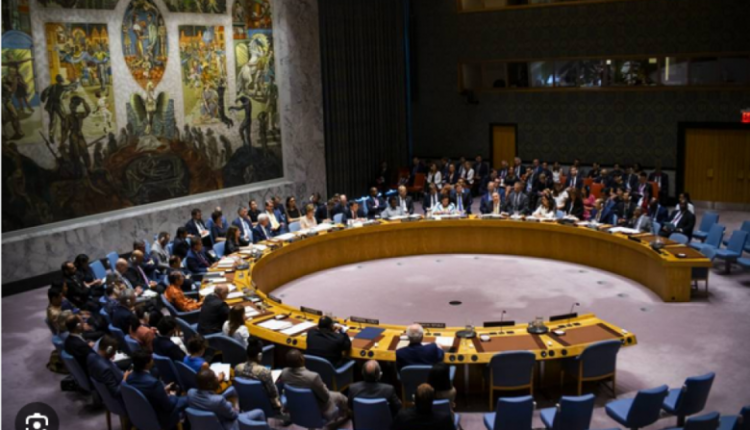The Security Council on the Frontlines of Aggression: How Resolution 2801 Serves U.S. and Israeli Agendas
The conduct of the United Nations Security Council regarding Yemen reflects a longstanding bias toward global hegemonic powers—today represented by the United States, Israel, and their regional and international instruments. These actors continue to steer international institutions in ways that serve their strategic interests. The Council, which is supposed to function as a global platform for ensuring international justice and protecting civilians, has in practice become a political pressure tool used to consolidate the influence of major powers and direct the course of conflicts according to their own vision—while ignoring the humanitarian and legal principles that form the basis of its legitimacy.
This policy is vividly apparent in the Yemen file, where international and regional interests intersect with systematic double standards. Acts of national self-defense are portrayed as threats, while massive violations committed by foreign-backed aggressors are downplayed or ignored. Within this complex landscape, any resolution issued by the Council becomes more than a procedural action; it becomes a mirror reflecting international bias and the strategic calculus of major powers in shaping the trajectory of Yemen’s crisis. This understanding forms the basis of the first axis of this report.
Security Council Resolution 2801 (2025): Between External Bias and Sana’a’s Position
Against this backdrop, Security Council Resolution 2801 (2025) emerges not as a routine measure but as a new link in a chain of resolutions framed in the language of dominant powers—chiefly the United States, which drives international policy according to its strategic agenda, while granting wide latitude to the Zionist entity, “Israel,” and its key regional tools in Yemen, particularly Saudi Arabia and the UAE—the two most blatant and ruthless executors of Washington’s project on Yemeni soil since 2015.
The resolution focuses on what it labels “Houthi threats to navigation,” while ignoring the direct aggression and comprehensive blockade imposed on the Yemeni people for more than ten years. It effectively positions the aggressor as the victim and holds Yemen responsible for defending itself, all while overlooking the persistent daily crimes committed by Israel against Gaza for two years—crimes that have not elicited any serious international condemnation.
In this context, Political Bureau member Mohammed al-Faraj expressed Sana’a’s official position, stating that the Council presents “one of the worst examples of double standards,” particularly at a time when Yemen is under direct attack through an enduring blockade and military aggression. He added that certain international organizations are being exploited for intelligence purposes on behalf of Israel under the guise of humanitarian work—reflecting a dangerous overlap between politics and humanitarianism and the instrumentalization of international platforms to serve great-power interests.
From a broader analytical perspective, the latest resolution exemplifies how the Security Council is used to entrench Western hegemony over the Yemeni file, restrict the Yemeni state’s ability to defend its sovereignty and national resilience, and portray Yemeni resistance as a threat—while whitewashing the record of Saudi and Emirati aggressors and minimizing Israel’s role. Sana’a’s reading of the resolution is therefore crucial for understanding ongoing international bias and the Western strategies and regional instruments working to reshape Yemen’s future according to their interests.
Double Standards in Addressing the Aggression Against Yemen
The Security Council’s approach to the Yemen conflict reveals a consistent pattern of double standards. Major violations have been met with negligible action, while attention is focused on far less significant transgressions elsewhere. Since March 2015, the United Nations and human rights organizations have documented hundreds of thousands of civilian casualties and more than four million displaced persons due to airstrikes and the ongoing blockade. Yet the Council has largely confined itself to symbolic statements, failing to impose sanctions or restrict the flow of weapons used against civilians and critical infrastructure.
Between 2015 and 2024, the coalition carried out more than 20,000 airstrikes targeting schools, hospitals, markets, and residential areas. The blockade on cities and ports continued, obstructing the delivery of food and medicine to millions. The World Food Programme reported that more than 17 million Yemenis face the risk of famine, with over 2.3 million children suffering from acute malnutrition. These figures underscore the Council’s role in shielding the aggressors and enabling them to continue their attacks without accountability—an unmistakable example of intern

